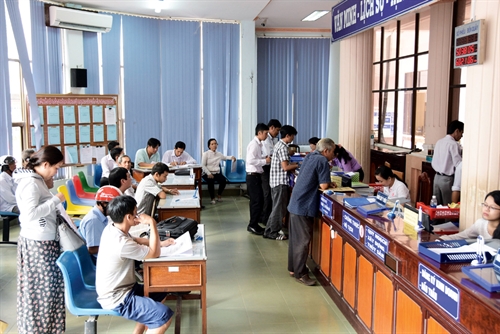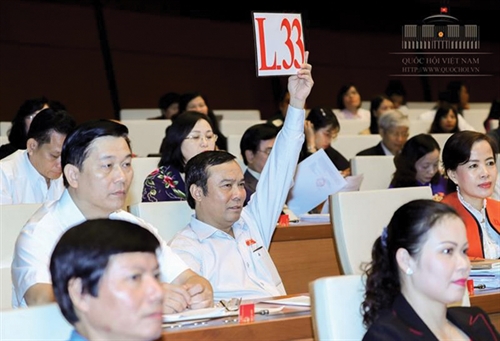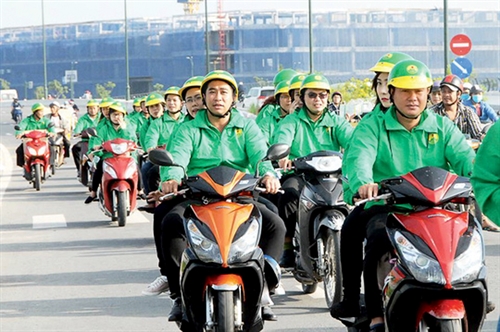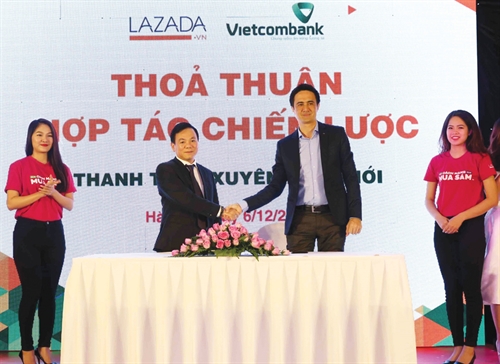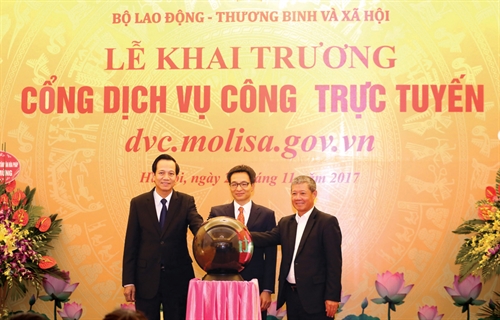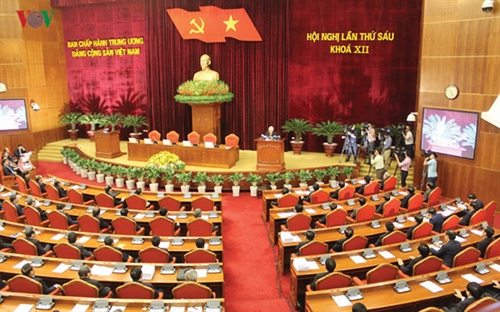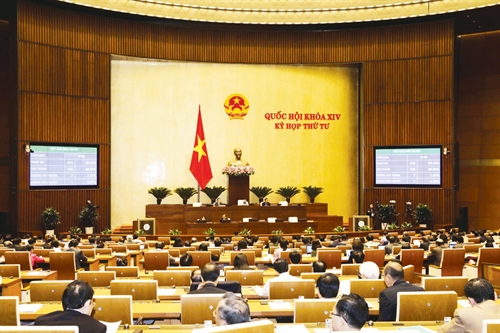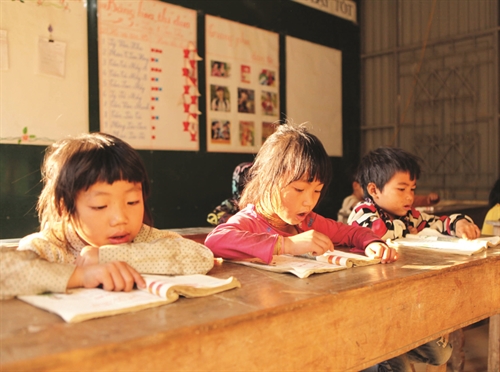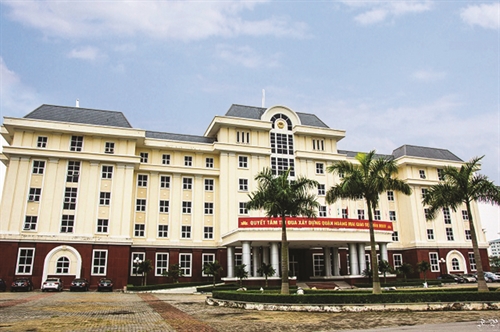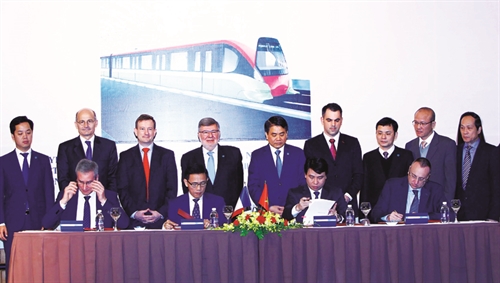Law on Belief and Religion
This Law expresses humanity in the Vietnamese State’s policy on freedom of belief and religion for people whose civic rights are restricted, including those who are held in custody or temporary detention, prisoners and those at correctional schools and compulsory educational and drug rehabilitation centers.
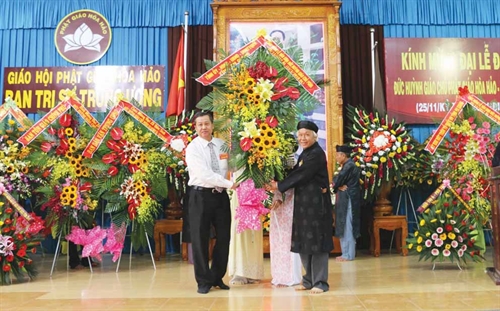 |
| Vice Chairman of An Giang province’s People’s Committee Le Van Nung gives flowers in greeting Hoa Hao Buddhism’s Virtuours Master Huynh Phu So’s birthday anniversary__Photo: Vuong Thoai Trung/VNA |
Freedom of belief and religion is the right of everyone, a human right, which is not limited for reasons of citizenship, gender or age, the Law affirms.
To ensure its rights and obligations when participating in legal relations, the Law says that a religious organization has the legal status like a non-commercial legal entity from the date it is recognized by a competent state body.
On December 30, 2017, the Government issued Decree 162/2017/ND-CP detailing a number of articles of this Law.
Social insurance policies
Two groups of persons are added to the list of those covered by compulsory social insurance under the 2014 Law on Social Insurance. They are persons working under employment contracts of a term of between full one month and under three months and foreigners working in Vietnam with work permits or practice certificates or licenses issued by competent Vietnamese agencies.
The monthly salary as the basis for social insurance premium payment consists of the salary, salary-based allowances and other additional amounts specified in the employment contract, instead of the salary plus salary-based allowances under previous regulations. This policy is provided in the 2014 Law on Social Insurance, Government Decree 115/2015/ND-CP of November 11, 2015, and Ministry of Labor, War Invalids and Social Affairs Circular 59/2015/TT-BLDDTBXH of December 29, 2015, detailing a number of articles of the Law on Social Insurance regarding compulsory social insurance.
Regarding payment of insurance premiums for employees, Article 216 of the 2015 Penal Code (amended in 2017) states that a person who is obliged to pay social insurance, health insurance or unemployment insurance premiums for employees but commits a deceitful act or employs another trick to evade paying or insufficiently pay premiums for six months or more will face a fine of up to VND 1 billion, or a prison sentence of up to seven years. A commercial legal person committing this offense will be subject to a fine of up to VND 3 billion.
Law on Foreign Trade Management
This Law notes that traders’ right to freedom of export and import business will be limited only in cases where export or import is banned, suspended or restricted under the Law.
Foreign-invested traders and branches of foreign traders in Vietnam will exercise their right to import and export in accordance with the Law and treaties to which Vietnam is a contracting party.
Foreign traders without presence in Vietnam and organizations and individuals of the countries and territories being members of the World Trade Organization or having bilateral agreements with Vietnam will have the import and export rights under Vietnamese law and treaties of which Vietnam is a member.
On January 15, the Government issued Decree 09/2018/ND-CP, detailing the provisions of this Law and Commercial Law regarding goods purchase and sale and activities directly related to goods purchase and sale of foreign investors and foreign-invested economic organizations; and Decree 10/2018/ND-CP detailing a number of articles of this Law regarding trade remedies.
Tourism Law
Under this Law, the State will adopt policies to mobilize all resources for tourism development in order to turn tourism into a spearhead industry of the country.
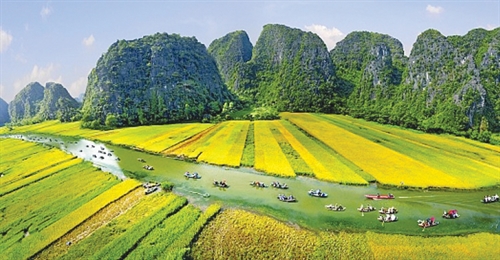 |
| Tam Coc-Bich Dong tourist site in Ninh Binh province__Photo: Internet |
Tourism businesses are entitled to the highest investment incentives and support levels from the State, the Law says.
Compared to the previous Law, a substantial change is the simplification of many administrative procedures. For instance, a business applying for an international tour operator license will file its application directly with the Vietnam National Administration of Tourism instead of sending it to a provincial-level Tourism Department or Culture, Sports and Tourism Department for appraisal and waiting for approval from the Administration.
Another difference between the Law and its 2005 version consists in the registration for ranking of tourist accommodation establishments. It can be now made on a voluntary basis. But only establishments that satisfy the required conditions may register for its ranking with a competent agency.
Penal liability of commercial legal persons
New provisions on the penal liability of commercial legal persons make up one of the most important changes in the 2015 Penal Code and its fresh amendments since its initial promulgation in 1985.
The Code establishes 33 offenses for which commercial legal persons may be held criminally liable, including 22 in Chapter XVIII “Offenses against the economic management order” (Articles 188 thru 196, 200, 203, 209 thru 211, 213, 216, 217, 225 thru 227, 232 and 234), nine in Chapter XIX “Environmental offenses (Articles 235, 237 thru 239, and 242 thru 246), and two in Chapter XXI “Offenses of infringement upon public safety and public order” (Articles 300 and 324).- (VLLF)
